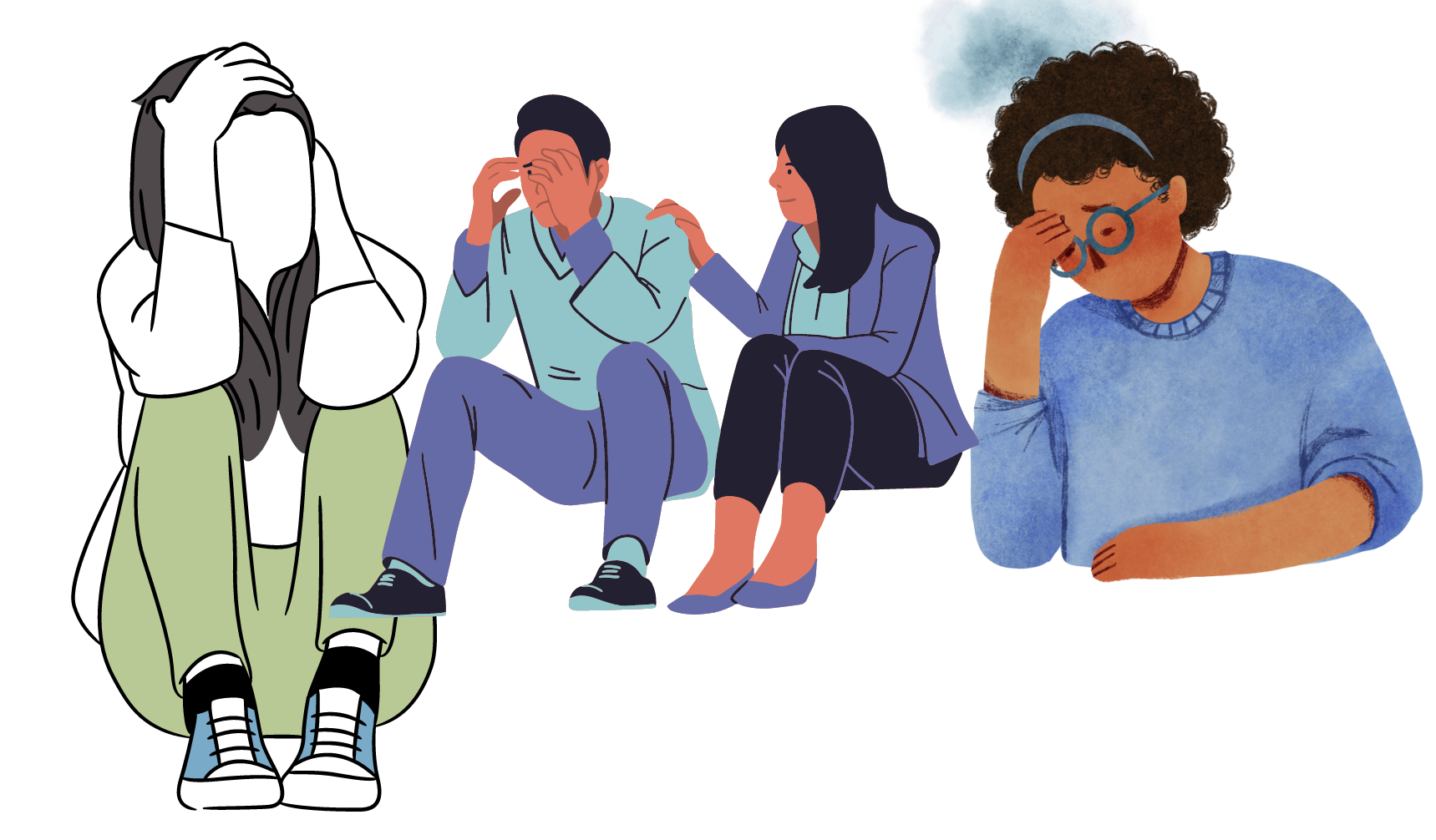Depression

What is depression?
Depression is a common mental health disorder that affects how a person thinks, feels, and behaves. It is characterized by persistent feelings of sadness, loss of interest or pleasure, and a range of physical and cognitive symptoms that can interfere with daily activities.
Who's at risk for depression?
Depression can affect people of all ages, genders, races, and socioeconomic backgrounds. However, some factors may increase the risk of developing depression, such as:
- Family history of depression or other mental health disorders
- Traumatic life events, such as the loss of a loved one or a major illness
- Chronic stress or ongoing personal or work-related difficulties
- Substance abuse or addiction
- Certain medical conditions or medications
What causes depression?
The exact cause of depression is not fully understood, but it is believed to be a complex interplay between genetic, environmental, and biological factors. Some of the key factors that may contribute to the development of depression include:
- Imbalances in brain chemicals (neurotransmitters) that regulate mood
- Structural and functional changes in the brain
- Hormonal changes, such as those that occur during puberty, pregnancy, and menopause
- Chronic stress and trauma
- Substance abuse and addiction
- Genetics and family history
How does depression start?
Depression can start gradually or suddenly, often triggered by a stressful life event or a series of events. It may also develop without any apparent cause. The symptoms of depression may vary in intensity and duration, and they can worsen over time if left untreated.
What are the symptoms of depression?
The symptoms of depression may vary from person to person, but they generally include:
- Persistent feelings of sadness, hopelessness, or emptiness
- Loss of interest or pleasure in activities that were once enjoyed
- Changes in appetite and weight (either increased or decreased)
- Sleep disturbances, such as insomnia or oversleeping
- Fatigue and low energy levels
- Difficulty concentrating or making decisions
- Feelings of worthlessness, guilt, or shame
- Thoughts of self-harm or suicide
How is depression diagnosed?
Diagnosing depression involves a thorough evaluation of the person's symptoms, medical history, and family history. A healthcare professional may use various tools, such as questionnaires and rating scales, to assess the severity of depression and rule out other medical conditions that may cause similar symptoms.
How can depression be treated?
Depression can be treated with a combination of medications, psychotherapy, and lifestyle changes. Antidepressant medications work by regulating the levels of brain chemicals that are involved in mood and emotion. Psychotherapy, such as cognitive-behavioral therapy (CBT) and interpersonal therapy (IPT), can help a person learn new coping skills and ways to manage stress and negative thinking patterns. Lifestyle changes, such as regular exercise, healthy eating, and stress reduction techniques, can also improve symptoms of depression.
What complications may occur with depression?
Untreated depression can lead to a range of complications, including:
- Increased risk of other mental health disorders, such as anxiety and substance abuse
- Chronic health conditions, such as heart disease and diabetes
- Impaired social and work functioning
- Relationship problems and social isolation
- Suicidal thoughts or actions
How can I prevent depression?
There is no sure way to prevent depression, but some lifestyle changes may help reduce the risk of developing the disorder, such as:
- Regular exercise
- Healthy eating and sleep habits
- Stress reduction techniques, such as yoga and meditation
- Social support and positive relationships
- Avoiding substance abuse and addiction
Long-term management of depression
Managing depression over the long term may involve ongoing medication, psychotherapy, and lifestyle changes. It is important for a person with depression to work closely with their healthcare provider to develop a comprehensive treatment plan and monitor their symptoms regularly.
What is recent research saying about depression?
Recent research has shown that depression may be linked to inflammation in the body and changes in the gut microbiome. Studies have also highlighted the effectiveness of certain therapies, such as ketamine and psilocybin, in treating treatment-resistant depression. Additionally, advances in brain imaging technology have led to a better understanding of the neural mechanisms underlying depression, which may help improve treatment outcomes in the future.
Where can I go for more information on depression?
If you or someone you know is struggling with depression, it is important to seek help from a healthcare provider or mental health professional. The following organizations also provide information and resources on depression:
- National Institute of Mental Health (NIMH)
- Depression and Bipolar Support Alliance (DBSA)
- American Psychological Association (APA)
- National Alliance on Mental Illness (NAMI)

